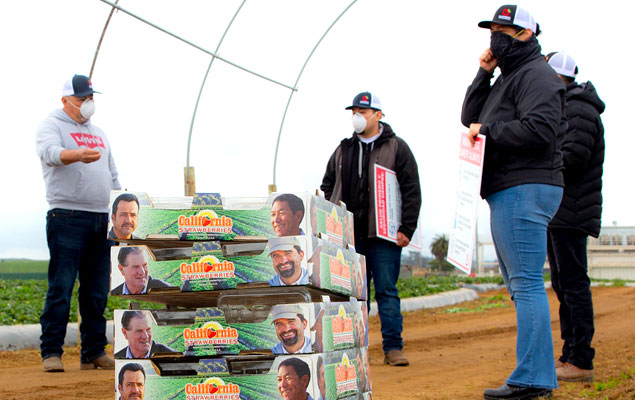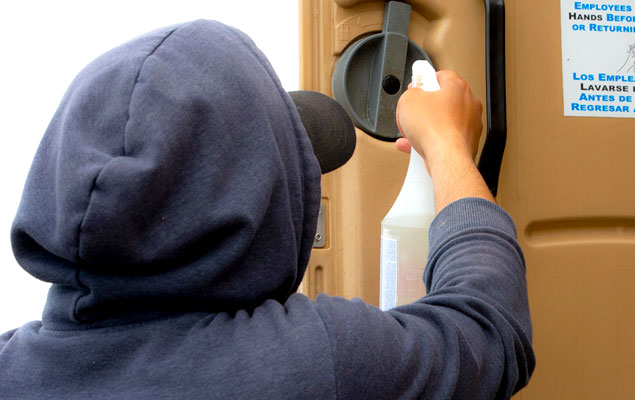
Over the past nine weeks, the California Strawberry Commission’s (CSC) bilingual outreach and training team has been in the fields providing guidance and training to ensure the safety of its workforce in the midst of the COVID-19 pandemic. Protecting the health and safety of each and every worker is the goal of the commission’s outreach campaign.
Working in conjunction with growers, county public health officials and agriculture organizations, commission staff have developed and adopted Standard Operating Procedures and customized training tools reflecting federal, state, and localized guidelines for practical implementation in strawberry fields. Under the banner of I Pick Safety. For Me. For All., the guidelines include recommendations for illness prevention on and off the farm. All materials and tools are available in Spanish and English. Audio and video resources are also available in Mixtec (the most predominant indigenous Mexican language spoken in the fields). See https://www.calstrawberry.com/en-us/Alerts/Coronavirus.
Information has been widely distributed about COVID-19 symptoms and the nature of the coronavirus, with an emphasis on how to prevent the spread of the disease. On and off the job, workers are encouraged to wash their hands, disinfect surfaces frequently, avoid close contact with other people, cough or sneeze into a tissue or flexed elbow, and to avoid touching their eyes, nose and mouth. Workers are also directed to monitor their physical condition, and if they develop any COVID-19 symptoms, to protect themselves and everybody around them by self-isolating and seeking medical attention.
On the farm, companies are implementing a wide variety of strategies to encourage enhanced worker screening, routine hand washing, social distancing, sanitation of high-touch surfaces and use of face coverings. Schedules and work practices have been altered to implement a safe physical distance of at least six feet between workers whenever possible. Crews are staggered when they go into the rows to harvest strawberries and directed to maintain a safe distance when they bring their berries to be inventoried. Some companies have opted to alternate or adjust break times, and workers who do not live together are required to maintain the minimum safe distance during rest and meal breaks.

Hand washing stations have been increased and there are both reminders and scheduled periods for workers to use them to frequently wash their hands for 20 seconds. Equally important is using disinfecting solution to wipe down surfaces. “We tell everybody, ‘If you touch it, sanitize it!” said Joy Jacobs, director of grower education for the commission.
Cloth face coverings and procedural masks are also widely in use to help prevent the spread of the disease from non-symptomatic people. “This has been an intensive and extensive outreach effort,” Jacobs added. “Our work has necessitated field visits and direct contacts with virtually every commercial strawberry grower in California.”
As strawberry growers and farm workers focus on the I Pick Safety program to reduce the spread of COVID-19 within the industry, consumers can be confident that their delicious California strawberries are safe to eat. According to the CDC and the Federal Food and Drug Administration, there is currently no evidence to support transmission of COVID-19 associated with food or food packaging.
The California Strawberry Commission represents more than 400 strawberry farmers, shippers, and processors working together to advance strawberry farming for the future of the land and people. Commission programs create opportunities for success with a focus on workforce training, strawberry production research, and nutrition research. Through science-based information and education, the commission delivers news about sustainable farming practices that benefit the health of people, farms, and communities. https://www.calstrawberry.com/en-us/

